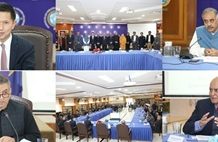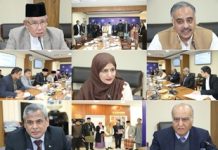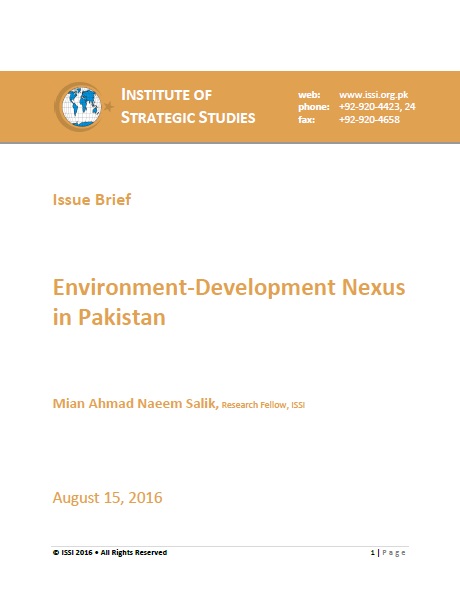Introduction:
Environment and Development are inextricably linked, as construction cannot take place without destroying something first. Pakistan faces many challenges in its quest towards development and economic growth. Increased economic activity depends on larger inputs of material and energy, and in-turn produces larger quantities of waste as by-products. The natural environment of the country is thus being harmed by accumulation of waste, concentration of pollution and extraction of natural sources for the purpose of economic development. Practically, the relationship between economic growth and environment depends upon a host of different factors. Among these are (1) the size of the economy, (2) the sectoral structure, (3) the technology, (4) the demand for environmental quality and (5) the level of environmental protection expenses. Issues like limited land resources, energy shortfalls and depleting water resources pose a serious threat to the country’s economy. Furthermore, deterioration of these resources is putting immense pressure on the pursuit of economic activity itself and placing Pakistan at risk eventually. The rapid industrial growth in the country has already worsened the precarious environmental problems in the country.
Some of the major environmental issues that the world and the developing countries including Pakistan are facing include the following: increased population pressure, unsustainable land use, air pollution, water pollution, noise pollution, climate change (Global Warming), natural resource depletion, unsustainable and high energy consumption, loss of biological diversity, degradation of freshwater, deforestation and unsustainable use of forests. Pakistan is an agrarian country with most of its population depend for their livelihood on agriculture related activities forming a rural economy. As this rural economy is closely related to climate sensitive sectors their thrust for development highly affects the environment negatively. As a result of high population growth and climate change water shortages is also becoming acute in many parts of the country coupled with devastating energy shortfalls, the rural economy is in a decline. Major impacts of climate change are potential of extreme weather, rising of sea level, and decreasing of agricultural productivity, which is currently happening in Pakistan.















